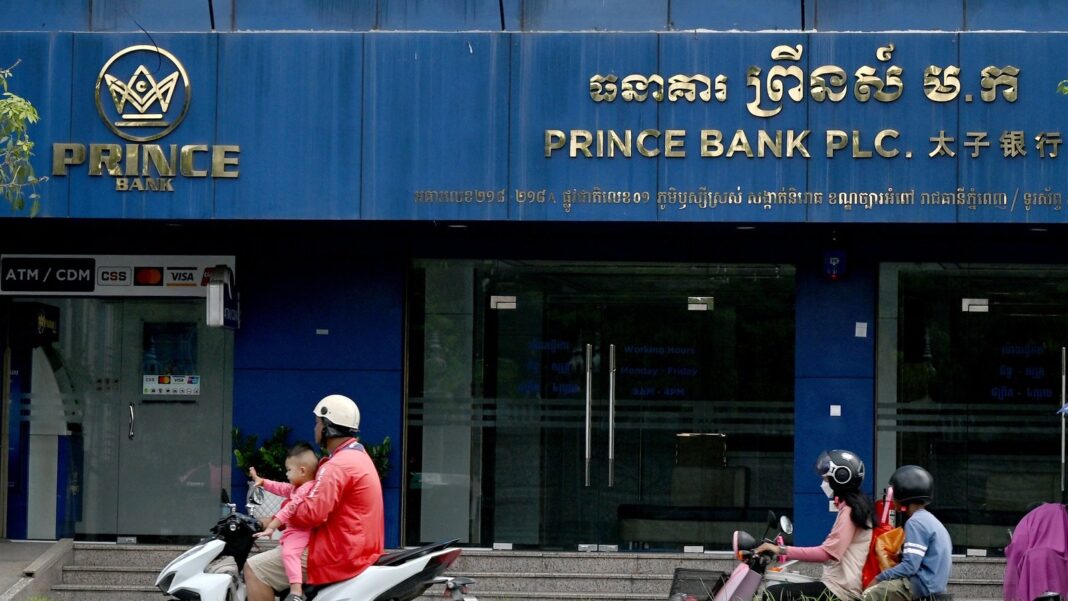Market Pulse
Today, {current_date}, the crypto world is abuzz with news of a significant crackdown on illicit finance. The U.S. Department of Justice (DOJ) has announced the indictment of Cambodian tycoon Chen Zhi, founder of the prominent Prince Group, in connection with an alleged $15 billion “pig butchering” cryptocurrency scam. This sweeping legal action marks a pivotal moment in the global fight against sophisticated digital asset fraud, highlighting the resolve of international law enforcement to pursue high-profile perpetrators.
Unpacking the ‘Pig Butchering’ Scheme
The term “pig butchering” (or “Sha Zhu Pan” in Chinese) refers to a particularly cruel and elaborate form of investment fraud. These scams typically involve fraudsters, often operating from organized cybercrime rings in Southeast Asia, cultivating long-term relationships with victims, usually through dating apps, social media, or professional networking sites. Over weeks or months, the scammers build trust and rapport, portraying themselves as successful investors or romantic interests. Once a strong emotional bond is established, they introduce the idea of a lucrative cryptocurrency investment opportunity, directing victims to sophisticated-looking but entirely fraudulent crypto trading platforms.
Initially, victims are encouraged to make small investments, seeing fabricated “profits” that build confidence. This phase, known as “fattening the pig,” involves convincing victims to pour increasingly larger sums into the fake platform. When the victim attempts to withdraw their substantial “returns,” they are met with demands for exorbitant “taxes” or “fees.” Once these are paid (or if the victim runs out of money), the scammers disappear, leaving the victim with devastating financial losses. A dark aspect of these operations is their often-documented link to human trafficking, where individuals are coerced into forced labor in scam compounds, perpetuating the fraud against others.
- Long-term social engineering to build trust and emotional bonds.
- Fake cryptocurrency investment platforms displaying manipulated data and false gains.
- Persistent pressure to continuously deposit more funds, often escalating rapidly.
- Inability to withdraw “profits” without paying exorbitant, fabricated “taxes” or “fees.”
- Links to forced labor and human trafficking rings in some regions, exploiting victims to perpetuate the scam.
- Sophisticated money laundering mechanisms employed to obscure the illicit origins and destinations of funds.
The Indictment and US Enforcement
The indictment against Chen Zhi and several co-conspirators represents a significant escalation in US efforts to combat such transnational criminal enterprises. While specific charges against Chen Zhi include conspiracy to commit money laundering and operating an unlicensed money transmitting business, the broader investigation reportedly unravels a complex network designed to funnel billions in illicit proceeds. The DOJ alleges that the Prince Group, under Chen Zhi’s leadership, facilitated these vast financial flows, often utilizing a labyrinthine structure of shell companies, false identities, and complex cross-border transactions to obfuscate the origin and destination of funds. This move underscores the Biden administration’s commitment to prioritizing the disruption of global illicit finance, leveraging international partnerships to bring perpetrators to justice, even when they operate beyond US borders. The scale of the alleged scam — an astounding $15 billion — highlights the immense challenge posed by organized cybercrime to the integrity of the global financial system.
Broader Implications for Crypto Security and Regulation
This high-profile indictment carries substantial implications for the wider cryptocurrency ecosystem. Firstly, it serves as a stark reminder of the persistent and evolving threat of sophisticated fraud within the digital asset space. For investors, it reinforces the critical importance of extreme vigilance, thorough due diligence, and skepticism towards unsolicited investment advice or romantic overtures involving crypto. Secondly, it signals an intensified regulatory focus on closing loopholes that enable such large-scale money laundering and illicit financial flows. Expect further scrutiny on crypto exchanges, DeFi protocols, and other digital asset service providers to enhance their anti-money laundering (AML) and know-your-customer (KYC) measures. The case also highlights the increasing coordination among international law enforcement agencies in tackling borderless cybercrime, suggesting that safe havens for crypto fraudsters are diminishing.
Conclusion
The indictment of Chen Zhi over an alleged $15 billion crypto ‘pig butchering’ scam is a landmark development. It demonstrates that the long arm of justice is extending further into the digital realm, actively dismantling criminal networks that exploit the promise of crypto for illicit gains. This case, dated {current_date}, serves as both a grave warning to potential victims and a clear message to perpetrators: sophisticated crypto fraud will be met with resolute, globally coordinated enforcement. As the crypto market matures, such actions are crucial for building long-term trust and fostering a more secure and legitimate digital economy.
Pros (Bullish Points)
- Stronger regulatory enforcement can deter future large-scale scams.
- Improved investor confidence due to proactive action against illicit activities.
Cons (Bearish Points)
- Highlights the ongoing prevalence and sophistication of crypto scams, potentially scaring new investors.
- The sheer scale of the alleged fraud could amplify concerns about market safety.
Frequently Asked Questions
What is a 'pig butchering' scam?
A sophisticated crypto fraud where scammers build long-term trust with victims, often through social engineering, then persuade them to invest in fake platforms, eventually stealing all their funds.
Who is Chen Zhi and what are the charges?
Chen Zhi is a Cambodian tycoon indicted by the US DOJ for allegedly orchestrating a $15 billion crypto scam, facing charges of money laundering and operating an unlicensed money transmitting business.
How does this impact the crypto industry?
It reinforces the need for strong security, investor vigilance, and international cooperation, while signaling continued regulatory focus on combating illicit finance in the digital asset space.



